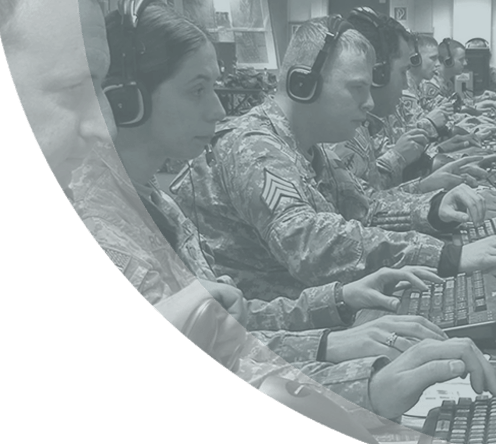Campus or Online Learning: Which Do Veterans Prefer?
written by Veterans Education Project, a partner of CollegeRecon
Veterans receive a great deal of financial support when it comes to pursuing post-secondary education. If we are to better serve the interests of our Veterans, we should understand Veterans’ preferences in educational institutions as well as the reasons for their choices. Over the past few years, pandemic lockdowns have caused many educational institutions to transfer over to online learning. This has prompted much discussion over the value of online versus in-person learning. The question for us is: do Veterans’ prefer Online or Campus learning?
The value of an online education is primarily in its flexibility. Veterans are more likely than the traditional student to be married, have a job, or be a parent. Some military students are still on active duty, while others still have training duties. The list goes on, but the point is that Veteran Students are likely to have competing obligations and cannot focus solely on educational pursuits. Online programs have often pioneered efforts to accommodate nontraditional students with irregular schedules. Their educational programs often operate a rolling enrollment and do not mandate specific study schedules. This allows Veteran Students to finish their degree at their own speed.
Veterans Value Teamwork
Despite the latitude afforded to students by online schooling, not everyone’s learning style can be satisfied through a screen. Many Student Veterans recognize that they need to interact directly with their teachers and fellow students in a classroom setting. Veterans value teamwork and the opportunities to find camaraderie are greater when you can see and speak to your classmates before, during, and after class. In-person schooling also grants better networking opportunities as well as access to various Veteran associations.
With all this being said, it is important to look at the choices that Student Veterans make with regard to their learning formats. According to a 2019 study by the Congressional Budget Office, Veterans enrolled in online schooling at roughly the same rate as non-GI Bill students: 12% and 13% respectively. Veteran Spouses enrolled at a rate of 17% while children of Veterans came in at a mere 2%. In 2016, online programs accounted for 8% of Post-9/11 GI Bill spending. Although this number may seem small, we should keep in mind that online schooling costs less than the average cost of all programs: $6,800 and $8,200 in 2016, respectively.
Almost All of the Top GI Bill Dollar Recipients are Private Institutions
On the surface, this might give the impression that Student Veterans are no more or less interested in online learning than the general populace. Furthermore, the majority of GI Bill users choose to attend public institutions. However, before we rush to direct effort towards in-person public education, the data also says that, since the Post-9/11 GI Bill was passed, almost all of the top GI Bill dollar recipients have been private institutions. In fact, the University of Phoenix, a private institution with a famed online program as well as campuses across the country, has been the top destination of Post-9/11 GI Bill beneficiaries since 2009. American Military University is fully online and ranked fourth in number of GI Bill-funded students 2017.
Although the majority of GI-Bill receivers will attend on-campus schools, it is clear that the most popular destinations for federal dollars are often private online education programs. What is the reason for such a demand? A spokesman from University of Phoenix spoke to Military Times on their appeal to Student Veterans: “Many of our student veterans tell us they either know or have spoken to other military-affiliated students and alumni. Through them, they see our dedication to veterans and military families.” The school recognizes that Veterans aim for practicality in their education, and as a result, has built a “career-relevant curriculum” that translates their experiences into academic credit. Flexibility has its advantages, but a Veteran-friendly institution has no substitute.
by Veterans Education Project
For more info on Veterans Education Project, please go here.
Sources:
RELATED:
- Why You Should Enroll Veterans at Your College or University
- Understanding the Benefits of Enrolling Veterans
- How Do Veterans Differ From Traditional Students?
- The Importance of a Veteran-Friendly Culture

